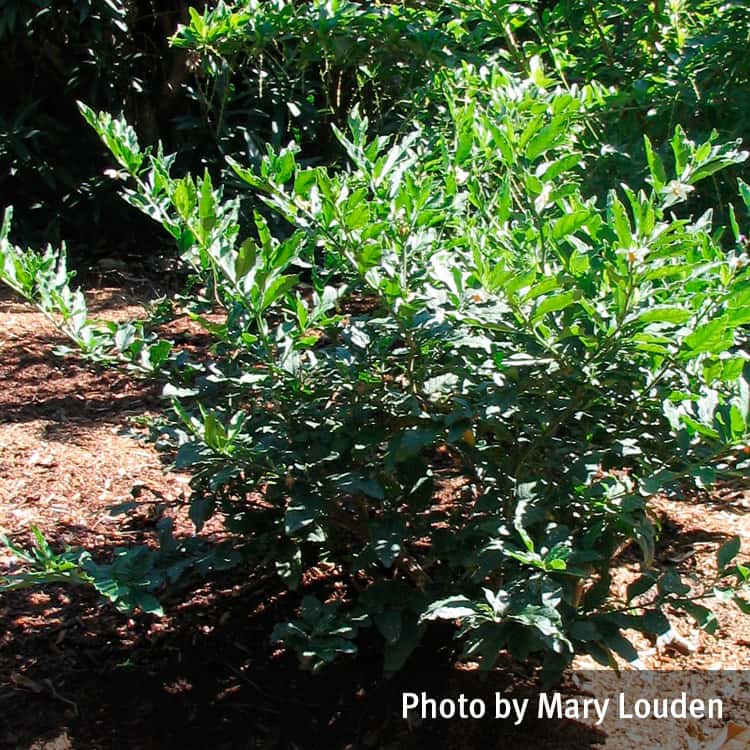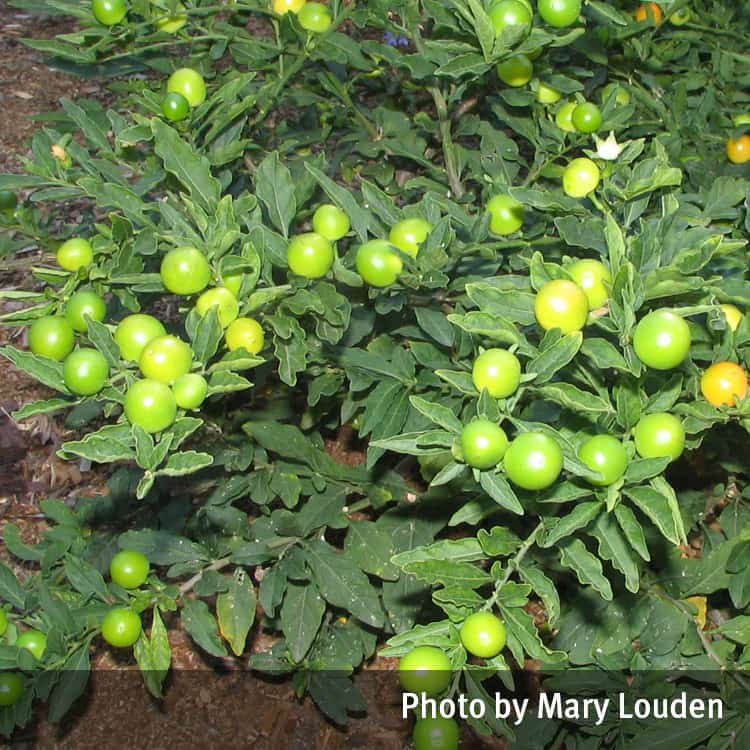Warning
Seek medical attention if symptoms occur.
Description
A small shrub to 1m tall, often cultivated as an ornamental, especially as a pot plant.
The flowers are white, 2 to 3mm across, star-shaped and most often solitary or sometimes with a few grouped together.
The leaves are alternate, elliptic, with an undulate margin, and are 1.5 to 10cm long and 0.5 to 2.5cm wide, with prominent veins on the underside.
Toxicity
Symptoms
All parts of the plant are poisonous, especially the unripe fruits. If plant or fruit is eaten, early symptoms can include fever, sweating, vomiting, stomach pain, headache and increased heart rate. Symptoms are delayed for several hours and can persist for days. Death has been reported.
Allergic skin reactions may occur in sensitive individuals.
Images


Details
Common name: Jerusalem cherry
Botanical name: Solanum pseudocapsicum
Other common names: Madeira winter cherry; winter cherry
Family: Solanaceae
General description: A small shrub to 1m tall, often cultivated as an ornamental, especially as a pot plant.
Flowers: The flowers are white, 2 to 3mm across, star-shaped and most often solitary or sometimes with a few grouped together.
Leaves: The leaves are alternate, elliptic, with an undulate margin, and are 1.5 to 10cm long and 0.5 to 2.5cm wide, with prominent veins on the underside.
Fruit/Berries: The fruit are a soft, globular berry, 1.5cm in diameter, bright orange-red in colour with numerous small seeds inside.